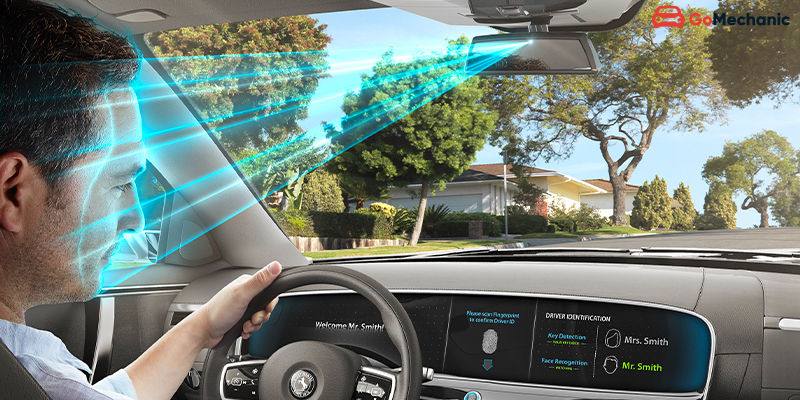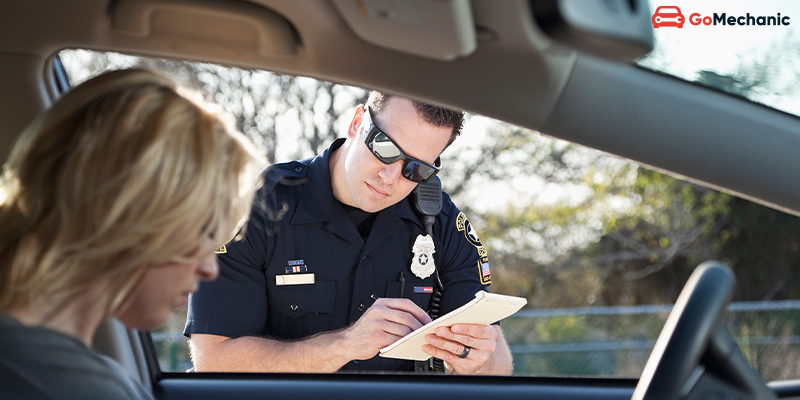Distracted driving is when a driver’s attention is taken away from safely operating a vehicle by activities like texting, eating, or daydreaming. It can be visual (taking eyes off the road), manual (taking hands off the wheel), or cognitive (mind not focused on driving). This behaviour significantly increases the risk of accidents.
Addressing distracted driving requires a numerous approach that combines technological innovations, awareness campaigns, legal measures, and behavioural changes.
Types Of Risk Associated
- Visual Risk: Taking eyes off the road to focus on other activities such as texting, reading, or looking at a GPS device.
- Manual Risk: Removing hands from the steering wheel to engage in tasks like texting, eating, adjusting controls, or reaching for objects.
- Cognitive Risk: Allowing the mind to wander or become preoccupied with non-driving-related thoughts, leading to reduced attention and reaction time.
- Reaction Risk: Decreased ability to respond promptly to unexpected events or hazards on the road due to divided attention caused by distractions.
Technology Solutions

In-car Technologies for Distraction Mitigation
- Heads-up displays (HUDs): Display crucial information on the windshield.
- Voice-activated controls: Enable hands-free operation for tasks like calls or settings adjustments.
- Lane departure warning systems: Alert drivers to lane drifts.
- Collision avoidance systems: Detect and prevent accidents.
Smartphone Apps to Prevent Distracted Driving
- DriveSafe Mode: Automatically activates in motion, blocks calls, texts, and notifications, sends automated responses.
- LifeSaver: Uses GPS to detect motion, blocks phone use, notifies guardians if phone is unlocked while driving.
- AT&T DriveMode: Silences calls and texts in motion, sends automatic replies to incoming messages.
- TrueMotion Family: Tracks driving behaviour, provides feedback to users and families, encourages safe driving.
- Focus: Monitors phone usage, gives real-time feedback, offers incentives like insurance discounts for safe driving.
Awareness Campaigns
Role of Education and Awareness Programs
- Providing information: Educate about dangers and consequences.
- Promoting safe behaviour: Encourage prioritisation of safe driving practices.
- Changing attitudes: Shift towards safer driving habits.
- Advocating for change: Push for policy, enforcement, and technology adoption.
Impact of Media Campaigns
- Media campaigns, such as TV ads, social media posts, and billboards, reach a wide audience and grab attention.
- These campaigns use powerful messages and visuals to highlight the consequences of distracted driving.
- Media campaigns create a sense of urgency and encourage people to change their behaviour by emphasising the importance of safe driving practices.
- They can influence public opinion, shape attitudes, and motivate individuals to take action to prevent distracted driving accidents.
Legal Measures

Laws and Regulations Regarding Distracted Driving
- Prohibit activities that distract drivers while operating vehicles.
- Vary by jurisdiction but aim to promote safe driving behaviour.
- Typically include restrictions on texting, using phone while driving, and other distractions.
- Enforced through fines, penalties, and licence sanctions.
- Designed to reduce accidents and protect road users.
Enforcement and Penalties
- Enforced by law enforcement agencies to ensure compliance with distracted driving laws.
- Penalties may include fines, licence suspension, or points on the driver’s record.
- Repeat offenders or those involved in accidents due to distracted driving may face harsher penalties.
- Designed to warn drivers from engaging in distractions while driving and promote safer roads.
Behavioural Changes
Strategies for Avoiding Distractions While Driving
- Keep your phone out of reach or use hands-free devices.
- Set up navigation and music before starting your journey.
- Avoid eating, drinking, or grooming while driving.
- Pull over to a safe spot if you need to address something urgent.
- Designate a passenger to handle calls or other tasks.
Encouraging Responsible Driving Habits
- Lead by example: Demonstrate safe driving practices to others.
- Educate others: Share knowledge about the importance of safe driving.
- Be patient and courteous: Foster a culture of respect and consideration on the road.
- Speak up: Encourage others to avoid distractions while driving.
- Support initiatives: Participate in campaigns promoting responsible driving behaviors.
Future Trends
Emerging Technologies to Combat Distracted Driving
- Advanced Driver Assistance Systems (ADAS) will become more common, helping to detect and prevent distractions.
- Artificial Intelligence (AI) will be used to develop smart systems that can anticipate and address distractions in real-time.
- Augmented Reality (AR) displays will provide essential information directly to drivers’ line of sight, reducing the need to look away from the road.
- Biometric sensors will monitor drivers’ vital signs to detect distractions and provide timely alerts.
- Vehicle-to-vehicle (V2V) communication will enable cars to share information about potential distractions on the road, enhancing overall safety.
Conclusion
In conclusion, addressing distracted driving, including using phones, drinking while driving and other such activities, is paramount for ensuring road safety. It’s evident that these behaviours significantly increase the risk of accidents and endanger the lives of drivers, passengers, and pedestrians alike. By implementing a multifaceted approach involving education, enforcement of laws, technological innovations, and fostering responsible driving habits, we can mitigate the risks associated with distracted driving. It’s crucial for individuals to understand the severe consequences of these actions and to always prioritize safe driving practices. Together, we can work towards safer roads and prevent avoidable tragedies caused by distracted driving.





